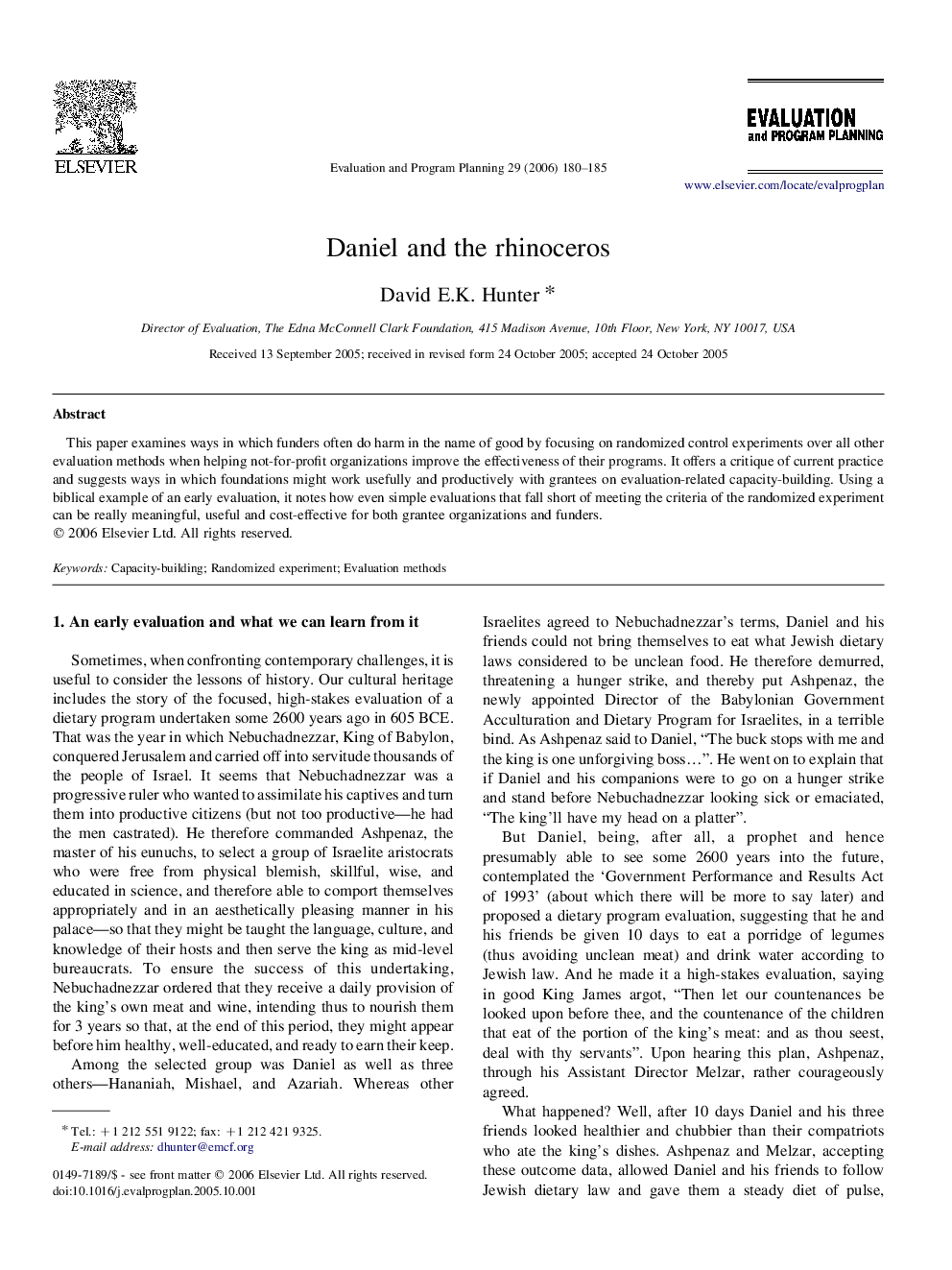| Article ID | Journal | Published Year | Pages | File Type |
|---|---|---|---|---|
| 322649 | Evaluation and Program Planning | 2006 | 6 Pages |
Abstract
This paper examines ways in which funders often do harm in the name of good by focusing on randomized control experiments over all other evaluation methods when helping not-for-profit organizations improve the effectiveness of their programs. It offers a critique of current practice and suggests ways in which foundations might work usefully and productively with grantees on evaluation-related capacity-building. Using a biblical example of an early evaluation, it notes how even simple evaluations that fall short of meeting the criteria of the randomized experiment can be really meaningful, useful and cost-effective for both grantee organizations and funders.
Related Topics
Health Sciences
Medicine and Dentistry
Public Health and Health Policy
Authors
David E.K. Hunter,
